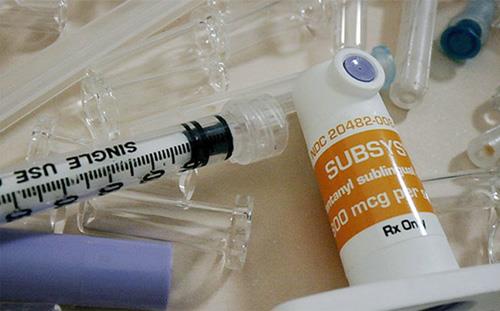
The COVID-19 pandemic has temporarily overshadowed what remains an even more lethal ongoing health crisis: the opioids epidemic that has claimed more than half a million lives in America since 1999.
It’s not a competition. But PBS’s Frontline offers a sobering documentary at 9 p.m. ET Tuesday (check local listings), titled Opioids, Inc., that reminds us how sometimes it’s not only the physical adversary with which victims must contend.
Opioids, Inc. traces the path of Insys Therapeutics, a drug company that began by doing something admirable: formulating an easily used spray form of an extremely powerful medication that could ease pain in late-stage cancer patients.
The company’s founder, John Kapoor, had begun searching for that kind of drug after his wife died of cancer. He turned to fentanyl, a drug 50 times more potent than morphine, and had his technicians rework it into spray form – which kicked in almost immediately, making it a godsend to sufferers and their loved ones.
An investigation by Frontline and the Financial Times discovered, however, that John Kapoor was equally obsessed with something else: making lots of money, like billions of dollars, from this drug.
He hired a sales chief whose game plan was to ignore any rulebook for selling medical material. Instead, Insys began bribing doctors, paying them large sums of money to speak at medical conferences, that may or may not have been bogus, in return for those doctors steering patients toward Insys products.
And not just Insys products, but ever-higher doses of Insys products. Higher doses sold for more money and thus meant higher profits for Insys, so sales reps and doctors were rewarded on a sliding scale. Get a patient up to the maximum dose, and everyone made money.
Opioids, Inc. does not talk to patients or their families, so we don’t meet any individuals who may not have needed the dosage their doctors recommended.
But just the fact Insys established that system compromised medical integrity. It also defrauded insurance companies, which is why Dr. Kapoor was charged, convicted, and sentenced to five and a half years in prison. He is currently appealing that sentence, which is why his attorneys said he would not be available for the documentary.
The people to whom filmmaker Tom Jennings does talk, however, are pretty candid about the Insys system, particularly from the sales side. Bribing doctors? Sure, that’s precisely what they were pushed to do.
Nor were drug sales even the primary profit center for Kapoor. That was Wall Street. As the popularity of Insys drugs seemed to soar, Insys went public, and its stock price soared, as well. Kapoor’s original $80 million investment had given him a paper value of more than a billion dollars before it all came crashing down.
At least one of Kapoor’s doctors tells Jennings that she remains conflicted. His original achievement of finding a better pain medication for terminal cancer patients, she said, remains admirable and legitimate. The subsequent greed, not so much.
Opioids, Inc. focuses solely on the Insys case, leaving viewers to draw their own conclusions about the larger issue: to what extent America’s opioids crisis could have been at least mitigated if there weren’t so much money to be made and enough people up the whole medical chain hadn’t been so eager to make it.